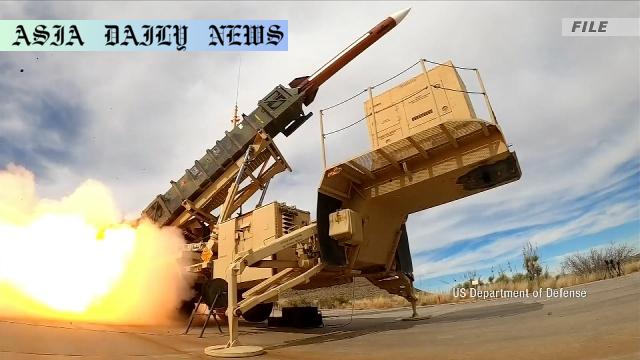Patriot System: U.S.-made Patriot anti-missile systems are set to strengthen Ukraine with transfers from Israel, Germany, or Greece.
- Patriot anti-missile systems from Israel to be sent to Ukraine.
- Discussions include transferring systems from Germany or Greece.
- Increase Ukraine’s anti-missile arsenal to 10 units.
- Russian dialogue seeks U.S. mediation for ceasefire talks.

Strengthening Ukraine’s Defense: Major Developments
The United States has put plans into motion to transfer advanced Patriot anti-missile systems from Israel to Ukraine, according to reports from The New York Times. These developments mark a significant milestone in global geopolitics, as Ukraine continues to rely on its Western allies for strategic military support amidst ongoing conflicts. The decision comes as discussions intensify to send additional units from nations such as Germany or Greece, ultimately expanding Ukraine’s anti-missile defense capacity to a total of ten systems. This demonstrates a robust commitment by the U.S. and its allies to counter potential threats and enhance Ukraine’s long-term military preparedness.
Strategic Dynamics Behind Transferring Patriot Systems
Patriot missile systems are globally recognized for their advanced technology and critical role in intercepting long-range threats like ballistic missiles. The transfer from Israel, a close ally of the United States, highlights strong cooperation within global security frameworks. Furthermore, by involving additional systems from Germany and Greece, this decision indicates a broader diplomatic effort that integrates European allies into the equation. These moves directly bolster Ukraine’s ability to guard against missile strikes, while ensuring that its military infrastructure can withstand or preempt large-scale attacks.
Political Implications and Speculations
Notably absent from these reports are explicit confirmations on whether former U.S. President Donald Trump approved these transfers. With Trump planning a visit to the Middle East, questions arise about potential discussions with Russian President Vladimir Putin and whether this signals a move toward diplomatic ceasefire talks. Russian Presidential Press Secretary Dmitry Peskov has, however, made it clear that Putin will not visit the region at that time, emphasizing the need for dialogue preparation through diplomatic channels. These developments frame a complex narrative, balancing military collaboration with efforts to mediate geopolitical tensions.
Future Prospects and Global Implications
The redistribution of Patriot anti-missile systems is expected to shape the future course of the Ukrainian conflict. Beyond merely military concerns, such decisions hold the potential to redefine alliances and reshape the dialogue between conflicting nations. With the U.S. actively promoting global security frameworks and potential ceasefire negotiations, an emphasis on dialogue may emerge to complement military aid. The involvement of other European players also signifies a unifying stance against threats to sovereignty. As ongoing developments unfold, the role of the international community in stabilizing Ukraine remains a key focal point in these diplomatic efforts.



Commentary
Understanding the Impact of Military Aid
The transfer of Patriot anti-missile systems to Ukraine highlights a critical juncture in global politics, where military strategy and allied cooperation take center stage. Providing these systems not only strengthens Ukraine’s defensive capabilities but also underscores a broader push by the West to support democratic states under siege. This decision reaffirms the U.S.’s commitment to standing by its allies, fostering security and resilience in the face of aggression.
Geopolitical Influence and Strategic Diplomacy
From a geopolitical perspective, this move has rippled implications. It showcases the strength of U.S.-Israel ties while simultaneously looping in Germany and Greece as key contributors to collective defense. Moreover, these developments also signal to adversaries that allied nations remain resolute in their shared commitment to counter aggression. However, it will be interesting to observe how these actions influence ongoing ceasefire negotiations or provoke further geopolitical maneuvering.
The Role of Dialogue in Resolving Conflict
While military aid plays a foundational role in fostering stability, it cannot replace the necessity of dialogue. The remarks by Dmitry Peskov on preparing talks with the U.S. emphasize the importance of maintaining open communication channels. These dual efforts—arming allies and encouraging diplomatic engagement—reflect the nuanced nature of modern conflict resolution. As the situation unfolds, a measured balance will be necessary to ensure military support does not overshadow efforts to achieve peace.